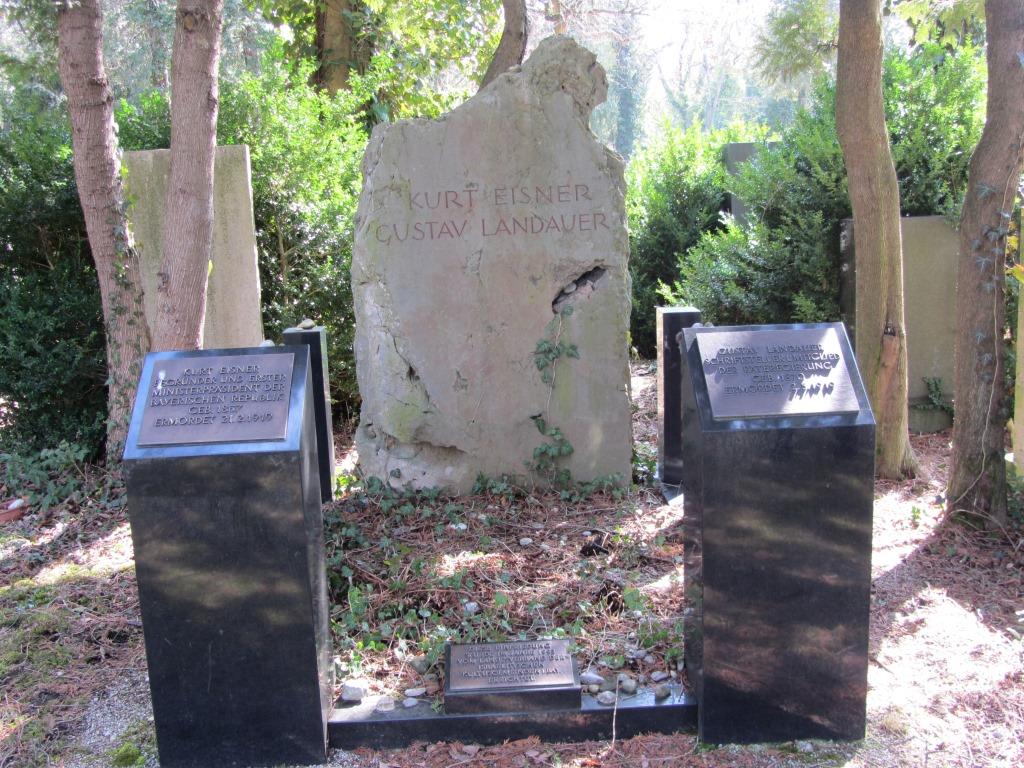Gustave Landauer (1870 - 1919)
Thu Apr 07, 1870

Image: Gustav Landauer's grave on the Neuer Israelitischer Friedhof in Munich. The grave is shared with Kurt Eisner.
Gustave Landauer, born on this day in 1870, was an anarchist pacifist who helped found the Bavarian Soviet Republic in 1919. The newly formed Republic was crushed by the right-wing Freikorps, and Landauer was arrested and murdered in prison.
Landauer briefly served as the Republic's commissioner for "Enlightenment and Public Instruction", but resigned after the German Communist Party (KPD) came into power.
According to anarchist author James Horrox, the German Social Democratic Party (SPD)'s Minister of Defence, Gustav Noske, ordered soldiers from the right-wing Freikorps militia into Munich to undermine the Republic.
Freikorps forces broke through Munich defenses on May 1st, 1919, and many left-wing revolutionaries were arrested, including Landauer, Eugene Leviné, and Ernst Toller.
The following day, Landauer was brought to Stadelheim Prison, where he was beaten by several soldiers and then brutally murdered as described by an eyewitness:
"An officer struck him in the face, the men shouted: 'Dirty Bolshie! Let’s finish him off!' and a rain of blows from rifle-butts drove him out into the yard. He said to the soldiers round him: 'I’ve not betrayed you. You don’t know yourselves how terribly you’ve been betrayed.'"
The eyewitness describes Landauer being shot repeatedly and trampled. His murderers then stripped the corpse and threw it into the washhouse.
In 1925, German anarcho-syndicalists built a memorial for Landauer at the Münchner Waldfriedhof, destroyed by Nazis only a few years later. A new one was constructed in 2017.
Landauer's grave can now be found on the Neuer Israelitischer Friedhof in Munich. It is shared with the social democrat Kurt Eisner, who had served as President of the People's State of Bavaria, a predecessor to the Bavarian Soviet Republic.
"Now is the time to bring forth a martyr of a different kind, not heroic, but a quiet, unpretentious martyr who will provide an example for the proper life."
- Gustav Landauer